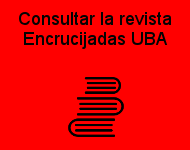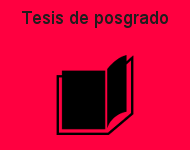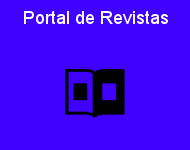La fórmula tota-simul-semper en la Monarchia de Dante y su utilización en la teoría política medieval
Arroche, Victoria
En:
Cuadernos de filosofía; Núm. 66 (2016); 35-46
Editor:
Universidad de Buenos Aires. Facultad de Filosofía y Letras. Instituto de Filosofía Dr. Alejandro Korn
Fecha:
2016-05-08
Tipo de documento:
info:eu-repo/semantics/article
info:eu-repo/semantics/publishedVersion
info:eu-repo/semantics/publishedVersion
Formato:
application/pdf
Idioma:
spa
Temas:
Dante Alighieri - medieval neoplatonism - political theory - Dante Alighieri - neoplatonismo medieval - teoría política
Contenido:
La doctrina neoplatónica procleana -tal como ingresó al occidente latino a través del Liber de causis- constituye una influencia filosófica verificable en los tratados políticos de Dante Alighieri. En efecto, esta tradición de pensamiento ofrece elementos teóricos que permiten justificar el no-averroísmo de Dante y, por lo tanto, mostrar que nuestro autor no sostuvo la denominada herejía monopsiquista. En ese sentido entonces, la investigación relativa al significado de la fórmula tota-simul-semper en el marco de la recepción de textos neoplatónicos puede constituir el punto de partida para la comprensión de la teoría política de Dante.
One of the ways in which Proclus’ neoplatonic doctrine has entered the Latin West was by the Liber de causis. This is a verifiable philosophical influence in the political treatises of Dante Alighieri. Indeed, this tradition of thought offers theoretical elements that justify the non-averroism of Dante, showing that our author did not hold the, so called, monopsychist heresy. Is in that sense, that the research on the meaning of the formula tota - simul - semper in the context of the neoplatonic philosophy can be the starting point for understanding the political theory of Dante.
One of the ways in which Proclus’ neoplatonic doctrine has entered the Latin West was by the Liber de causis. This is a verifiable philosophical influence in the political treatises of Dante Alighieri. Indeed, this tradition of thought offers theoretical elements that justify the non-averroism of Dante, showing that our author did not hold the, so called, monopsychist heresy. Is in that sense, that the research on the meaning of the formula tota - simul - semper in the context of the neoplatonic philosophy can be the starting point for understanding the political theory of Dante.
Identificador(es):
http://revistascientificas.filo.uba.ar/index.php/CdF/article/view/4355
ISSN 0590-1901
ISSN 0590-1901
Derechos:
info:eu-repo/semantics/openAccess
http://creativecommons.org/licenses/by-nc-nd/2.5/ar/
http://creativecommons.org/licenses/by-nc-nd/2.5/ar/
Descargar texto:  4355.oai
4355.oai
 4355.oai
4355.oai Cita bibliográfica:
Arroche, Victoria (2016-05-08). La fórmula tota-simul-semper en la Monarchia de Dante y su utilización en la teoría política medieval. (info:eu-repo/semantics/article). En: Cuadernos de filosofía; Núm. 66 (2016); 35-46. Instituto de Filosofía Dr. Alejandro Korn. Facultad de Filosofía y Letras. Universidad de Buenos Aires [consultado: ] Disponible en el Repositorio Digital Institucional de la Universidad de Buenos Aires: <http://revistascientificas.filo.uba.ar/index.php/CdF/article/view/4355>






























